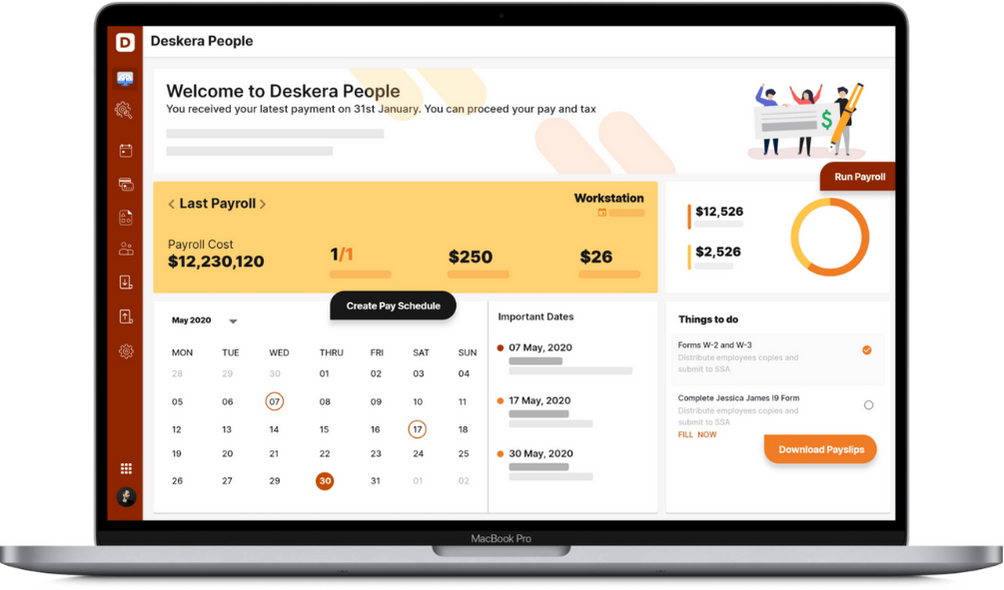Employees are the pillars of strength for any business. These days, they are looking for organisations that can offer more than just a salary. Today, the workers need additional perks apart from handsome pay, and even the employers want their team to be constant.
The company often seeks employees that will be with the firm in the long run and grow by leaps and bounds in the profession. To ensure, the employers are now providing Group Health Insurance as a key benefit for their staff.
What is Group Health Insurance?
Group health insurance is sometimes known as employer-based coverage. In layman’s terms, it is a type of insurance plan offered by an employer of the member organization. The insurance package received by the company staff is the same as an individual would receive if he plans to buy it individually. However, in the group, he will get lower coverage and benefits right from day one as it covers all risks.
The health plans given by employers are for all eligible employees and can also include dependents or family members. The inclusion of other members depends on eligibility criteria and the provider’s decision. These plans are usually selected and then purchased by the companies to give to their staff as an employment advantage. According to available data, these group plans need at least 70% participation from the employees in most states in America.
Who provides it?
An employer who has a minimum of 50 members or more as his office staff must provide a health insurance plan. In the United States of America, under the Affordable Care Act (ACA), the employer must include this coverage for full-time as well as part-time workers. If not, he can face hefty penalties. As per the law, an employee who has dependents below the age of 26, mostly children, are liable to receive this coverage or should be given an adequate fee for their care.
ERISA - Group Health Insurance Plan
The private companies in the US often opt for group health plans. It's an umbrella term for the insurance plan that provides healthcare benefits to the individual and his family. This established plan offers medical care to the participants through insurance, reimbursement or some other ways. These group plans are covered by the Employee Retirement Income Security Act, which is better known as ERISA. There have been major amendments in ERISA to expand the protection and beneficiaries for the participants and their dependents.
One of the major and most important amendments to this Act is Consolidated Omnibus Budget Reconciliation Act (COBRA). COBRA ensures some workers and their family to continue with the health insurance in turn of major events such as loss of job. One more vital amendment to this act has been Health Insurance Portability and Accountability Act. It gives important protections to the participant and his family who might be susceptible to discrimination in health coverage schemes on factors related to an individual’s health. A few other amendments in this act are -
- Newborns' and Mothers' Health Protection Act
- Mental Health Parity Act
- Women's Health and Cancer Rights Act
- Affordable Care Act
- Mental Health Parity
- Addiction Equity Act
How does the Group Health Insurance work - Who can sign?
While there is a requirement of a minimum of 50 employees in a business for the employer to start giving health insurance benefits, there are certain terms and conditions applicable to the employees too! To meet the eligibility requirements of group health insurance, the employee needs to be on the company’s payroll list and the employer must give payroll taxes each year to the federal government. The business owner cannot include these employees in this health insurance plan list -
- Contractors
- Retired employees
- Seasonal workers
- Temporary employees
Furthermore, if the employee is on unpaid leave due to some reason, he will also be counted as ineligible until he comes back from the leave period.
Benefits
The members of an organization can get various health benefits under group health insurance plans. Depending on what type of health insurance the provider has opted for, employees can also include additional plans in their existing cover. These additional plans can be for dental, vision, pharmaceutical supplies. It can be covered separately or get included in the same bundle.
With group insurance, health risks arising unexpectedly due to medical events gets covered at a very low premium. Thus, this plan proves to be a big moral support to the employee in his tough times. Furthermore, as family members can also be covered in it, the plan becomes a big aid to an employee who is the sole bread earner in a family and has a relative dealing with some grave health issues.
The group heal insurance plan offer tax benefits, both to employee and employer. The amount employer pays for monthly premiums of his staff is tax-deductible and can be shown while filing tax returns. In addition to this, the employees’ premium payments can be made pre-tax by the organization thus giving a great cut in the taxable income and ensuring good income.
The IRS also provides health insurance policies for small business owners. These owners must qualify for small business health care tax credit. It is an initiative with which an employer who has fewer than twenty-five full-time employees can get a health insurance plan through Small Business Health Options Program (SHOP) Marketplace. In this health plan, the employer needs to shell out at least fifty per cent of the cost coverage of health insurance for each employee.
How is the Group Health Insurance calculated?
The premium cost per employee in a company depends on the size of the group. Depending on the size - small or large, the premium of the insurance cover can be calculated. According to the rules, if the group size is small, consisting of 2 to 100 workers, it is set as per the Colorado regulations. The group health insurance plan for an employee can be billed in 2 ways -
- Composite Rating: In this, all the enrolling members are combined into a tiered rating system. Its different options include - only employee, employee + spouse, employee + children or the entire family
- Per member, per month rating: Employees who opt for per month billing will get an itemized rating for each individual on the basis of their age.
The large group health insurance pricing is decided by risk factors. The insurance company checks it for the whole group and can ask for age as well as the group’s past medical problems and history of health care use.
Insurance Plans
The group health insurance can be broken into 2 categories, namely -
- Plan type
- Metal type
Both of these insurance plans give different levels of financial options and flexibility on locations in the US.
Plan Type
- HMO: Health Maintenance Organization plan often permits the employees to select who will be their primary care provider (PCP). He could be their family doctor or a relative and has the full authority to refer the case to another specialist if the patient has been diagnosed with a specific health problem. The only condition in this plan is the healthcare provider must be in the network of the insurance pool. Exceptions in extreme emergencies are permitted
- PPO: PPO is Preferred Provider Organization. Even though this plan is the same as the HMO, here the employee has the liberty to choose doctors who are outside the company’s network.
- EPO: EPO or Exclusive Provider Organization is a combination of the above 2 plans. The employee can also make use of the Health Savings Account on the basis of his eligibility.
Metal Type
The different health insurance plans in this are -
- Platinum: This type gives maximum benefits to the employees. It covers almost 90% of the health expenditure and can reduce the burden on policyholders. The remaining 10% has to be paid by the employee. The only point here to know is this plan has higher monthly premiums
- Gold: This is similar to the platinum plan and covers 80% of the health expenses for the individual.
- Silver: It covers 70% of the health costs
- Bronze: These plans cover 60% of the health expenses and offer affordable premiums for employees of all levels. It is the best option for an individual who does not have any major issue and needs very less visits to the doctor or even a general physician.
Conclusion
Health should always be your first priority and it is always good to join an organization that offers health insurance benefits. The group health insurance plans give low premiums and are an advantage for the individual employee as well as his family. There are multiple types in these insurance plans which can be a big cost-saver for the individual during times of emergencies. Deskera, with its product, can offer to customize your payroll and manage leave or attendance just at the tip of your fingertips.
How Can Deskera Assist You?
As a business, you must be diligent with employee leave management. Deskera People allows you to conveniently manage leave, attendance, payroll, and other expenses. Generating payslips for your employees is now easy as the platform also digitizes and automates HR processes.

Keynotes
1. The employer must provide health insurance benefits to the employees as per the ERISA act in America.
2. Under the Affordable Care Act, the employer must provide group health insurance for all employees even if they are fewer than 50.
3. This insurance plan is not applicable to contractual workers, part-time employees or seasonal employees or retired workforce, and the employer shall not give any schemes to them.
4. Healthcare is the prime benefit that most employees look for while joining a job and group insurance cover offered by the organization means a low premium. The group plan can be extended to your spouse, children and covers all medical issues right from the start.
5. There are 2 different ratings in group health insurance plans that decide the premium amount for an employee. He can select his plan type on basis of requirements and as permitted by the employer. Usually, the organisations have a tie-up with health insurance providers and decide the scheme they would want to provide to the employees. It is beneficial for both in tax payments.
Related Articles











